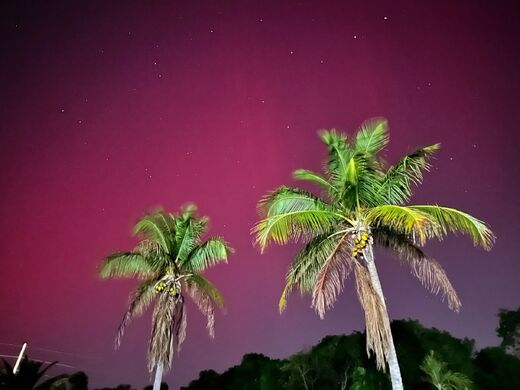The truth about the brutal removal of 1,500 islanders and the official conspiracy to deny the presence of an indigenous population did not emerge for another 20 years. Secret official files were unearthed at the Public Record Office, in London, by lawyers acting for the former inhabitants of the coral archipelago, who wished to return to their homeland. Historian Mark Curtis described the enforced depopulation in Web of Deceit, his 2003 book about Britain's post-war foreign policy. The British media all but ignored it, while the Washington Post called it a 'mass kidnapping'.
Pilger first heard of the plight of the Chagossians in 1982, during the Falklands War.
'Britain sent a fleet to the aid of 2,000 Falkland Islanders at the other end of the world, while another 2,000 British citizens from islands in the Indian Ocean had been expelled by British governments and hardly anyone knew. The difference was that one lot were white and the others were black, and the United States wanted the Chagos Islands - especially Diego Garcia - as a major military base.'At the beginning of Stealing a Nation, Pilger says:
'There are times when one tragedy, one crime, tells us how a whole system works behind its democratic façade and helps us understand how much of the world is run for the benefit of the powerful and how governments often justify their actions with lies.'He recalls how the Chagos paradise - with an abundance of natural produce and no extreme weather - once had thriving villages, a school, a hospital, a church, a railway and an undisturbed way of life until a secret 1961 Anglo-American survey of Diego Garcia led both governments to plot to remove the inhabitants.
The expulsions began in 1965. People were herded into the hold of a rusting ship, endured rough seas and were dumped in the Seychelles, where they were held in prison cells. They were then shipped on to Mauritius, where they were taken to a derelict housing estate with no water or electricity. Twenty-six families died in brutal poverty, there were nine suicides and girls were forced into prostitution to survive.
The depopulation of the archipelago was completed within 10 years and Diego Garcia became home to one of the United States's biggest bases, with more than 2,000 troops, two bomber runways, 30 warships, facilities for nuclear-armed submarines and a satellite spy station.
In a series of moving interviews, Pilger hears from islanders forced from their homes. One woman recalls how she and her husband took their baby to Mauritius for medical treatment and were told they could not return. The shock was so great that her husband suffered a stroke and died. Others describe how the British and Americans gassed their dogs - beloved pets - as an inducement to pack up and leave. In exile in Mauritius, Lizette Talate's children 'died of sadness'.
After demonstrating on the streets of Mauritius in 1982, the exiles were given the derisory compensation of less than £3,000 each by the British government. With the discovery of declassified Foreign Office files, the full cynicism was laid bare. One file was headed, 'Maintaining the Fiction'.
In 2000, the High Court in London ruled the expulsions illegal. In response, the Labour government of Tony Blair invoked the Royal Prerogative, an archaic power invested in the Queen's 'Privy Council' that allows the government to bypass Parliament and the courts. In this way, the islanders were banned from ever returning home.
Stealing a Nation won the Royal Television Society's 2005 Best Single Documentary award. A year later, the High Court finally ruled that the Chagossians were entitled to return. However, in the summer of 2008, the Foreign Office appealed to the Supreme Court, formerly known as the Law Lords. The appeal was successful.
In 2010, the British government hurriedly established a marine nature reserve around the Chagos Islands. Soon afterwards, WikiLeaks published a US Embassy diplomatic cable from 2009 that read:
'Establishing a marine reserve might indeed, as the FCO's [Colin] Roberts stated, be the most effective long-term way to prevent any of the Chagos Islands' former inhabitants or descendants from resettling.'Emboldened by this disclosure and by public support, an indefatigable campaign of islanders and their supporters shows no sign of giving up.
Awards: Best Single Documentary, Royal Television Society Awards, 2005; The Chris Statuette in the Social Issues division, Chris Awards, Columbus International Film & Video Festival, Ohio, 2003.
'Stealing A Nation' was a Granada production for ITV. It was first broadcast on ITV1, 6 October 2004...yes 2004.




Reader Comments
A very brave man.
I don't think he needs anybody to tell him what he should or shouldn't do.
Only God can judge him.
The rest of us sitting on our arses in the comfort of our living rooms should just be jolly well grateful